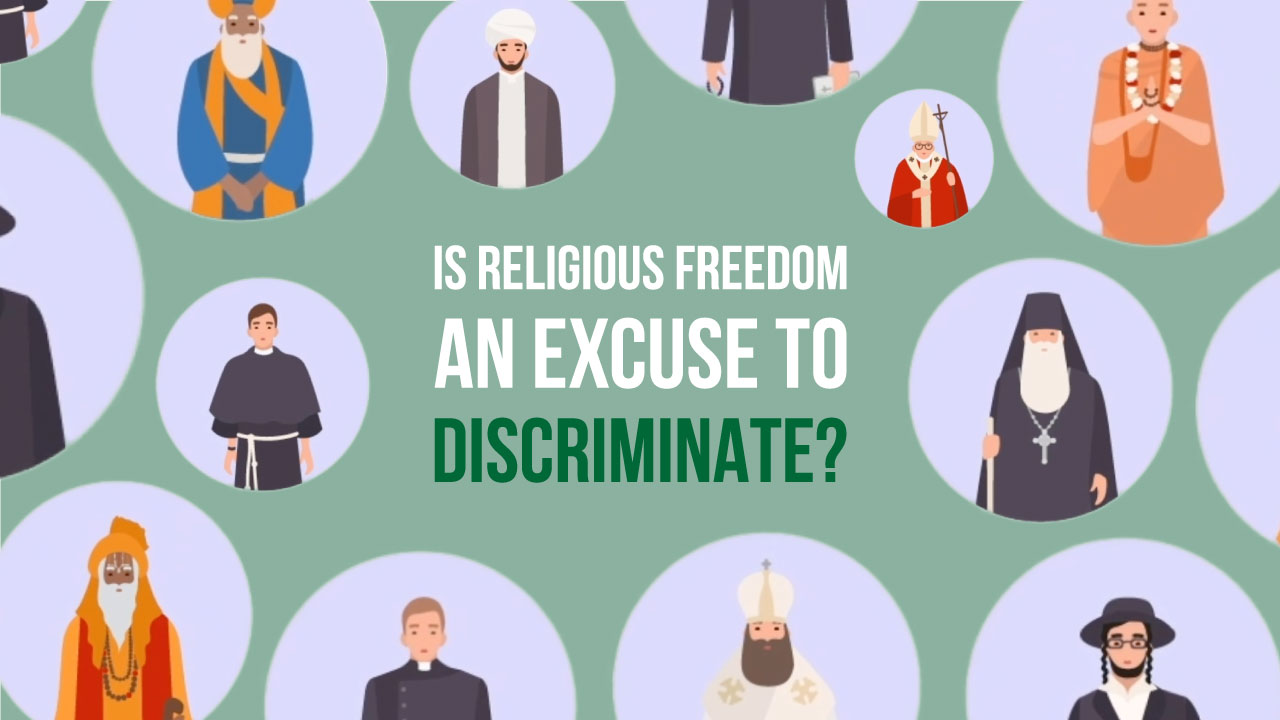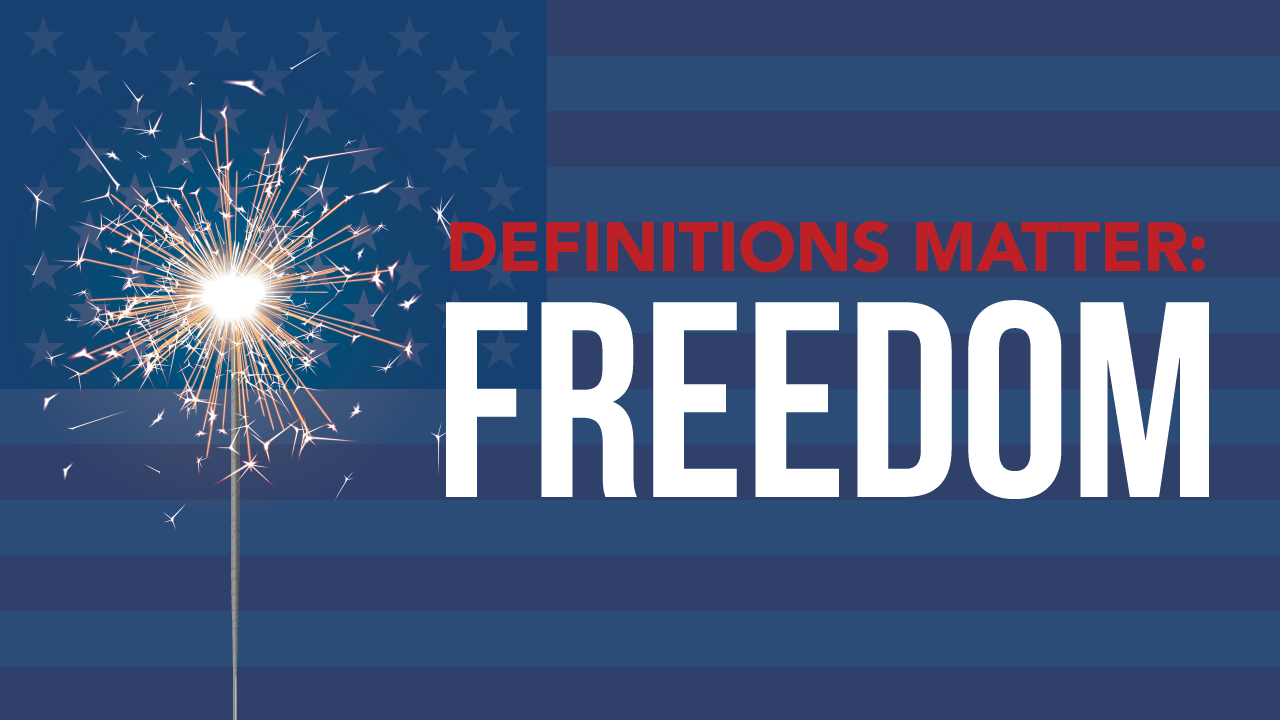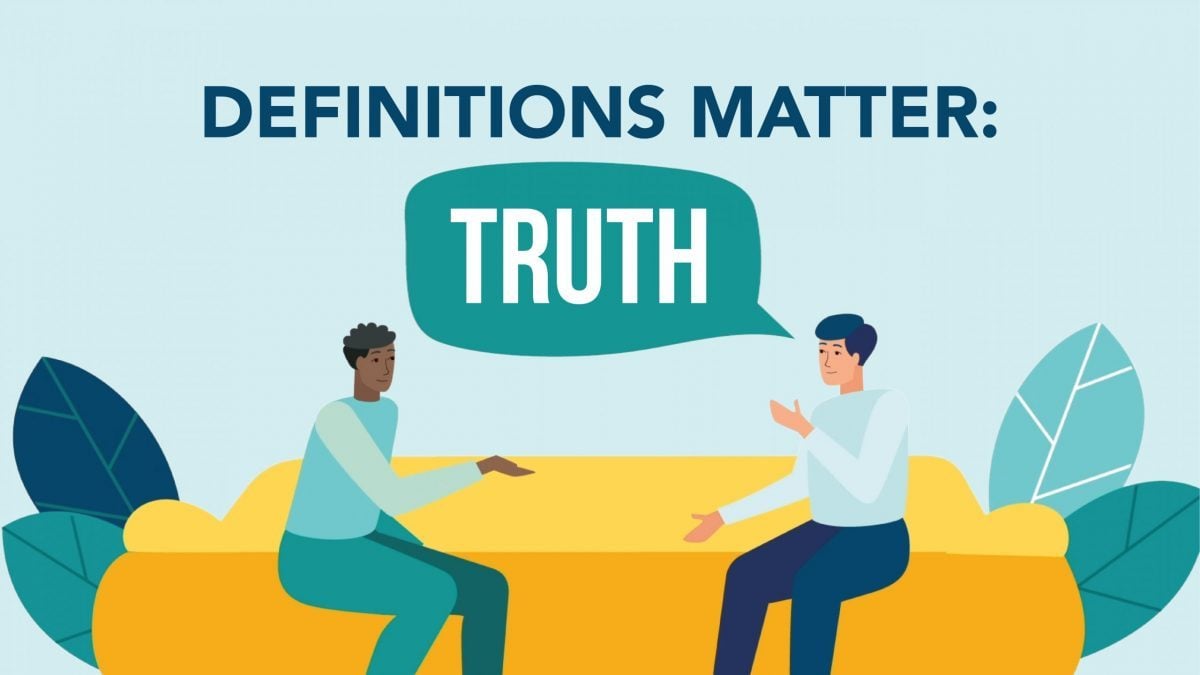You’re in a conversation and someone start talking about rights: “human rights,” “women’s rights,” “gay rights,” “trans rights,” or maybe they refer to things like healthcare, income, or a job as “rights.”
What would you say?
Definitions matter. In conversations, we often find ourselves using the same vocabulary as others, but not the same dictionary. To have good conversations, we must first clarify our definitions.
So, the next time someone uses the word “rights” without defining it, here are three things to remember:
1. A “right” doesn’t mean “something I really want”
2. Rights come from God, not from the government
3. There is no right to take away someone else’s rights
You're in a conversation and someone start talking about rights: “human rights,” “women’s rights,” “gay rights,” “trans rights,” or maybe they refer to things like healthcare, income, or a job as “rights.” What would you say? Definitions matter. In conversations, we often find ourselves using the same vocabulary as others, but not the same dictionary. To have good conversations, we must first clarify our definitions. So, the next time someone uses the word “rights” without defining it, here are three things to remember: Number one: A “right” doesn’t mean “something I really want”: Just because you want something, even very badly, doesn’t mean it is a right. I may want my neighbor’s car, but that doesn’t give me the right to drive off with it. I may want society to pay me for never working again, but that doesn’t give me the right to demand it. This is especially true when what I want is impossible. If I said, “I want to be a bird. I have a right to be a bird!” that doesn’t mean I can fly when I jump off a ten-story building. Reality doesn’t change in order to conform to my made-up “right.” In the same way, a man may want to be a woman. But that doesn’t give mean they have the right or even the ability. And it doesn’t mean they have the right to demand that others agree and act as if it is true. No one has the right to ignore reality—no matter how badly they want to. Number two: Rights come from God, not from the government: The American Declaration of Independence says that “…all Men are created equal, and are endowed by their Creator with certain unalienable rights.” According to Thomas Jefferson, these rights were not given by government. In fact, these rights precede government. It is the government’s responsibility to secure them. While this kind of language comes from thinkers like John Locke, the concept itself is much older. In fact, it is rooted ultimately in the Ten Commandments. “You shall not murder” is another way of expressing the right to life. “You shall not steal” is another way of expressing the right to property. Throughout history, Christian thinkers have insisted that good laws secure our rights, because they agree with God’s highest moral Law. When a human law contradicts that moral Law, it’s no law at all. In the 20th century, this was the basis for the Civil Rights movement, in which Martin Luther King, Jr., declared that segregation laws violated the God-given rights of African Americans, and therefore were no laws at all. Number three: There is no right to take away someone else’s rights: True rights don’t conflict. This is vital to understand. For example, when someone talks about “women’s rights,” they may mean things like women being able to vote or drive. Or, they may be using “women’s rights” as code for abortion. But notice that voting and driving don’t take away anyone else’s rights. Killing an unborn child does. In the same way, “gay rights” are sometimes code for forcing Christian bakers to celebrate homosexuality, or for forcing Catholic adoption agencies to place children with same-sex couples. “Trans rights” are often code for forcing women to give up their right to privacy in the locker room. Almost every time new “rights” are invented, someone else’s God-given rights are trampled. It’s very popular to talk about “rights” today. It’s a term that enters nearly every political debate, often used by someone claiming a “right” to something they want. In reality, the only real definition for “rights” goes back centuries, is rooted in human dignity and grounded in the unchanging Law of God. That means anyone who makes up or demands new “rights” is just wrong. So the next time someone uses the word “rights” without defining it, here are three things to remember: Number one: A “right” doesn’t mean “something I really want”: Number two: Rights come from God, not from the government: Number three: There is no right to take away someone else’s rights: For What Would You Say, I’m Shane Morris.
Letter from Birmingham Jail by Dr. Martin Luther King, Jr.
The Magna Carta of Humanity: Sinai's Revolutionary Faith and the Future of Freedom by Os Guinness
God and Government by Chuck Colson
https://www.harpercollinschristian.com/9780310791249/god-and-government/
 Read More
Read More



 Shane Morris
Shane Morris

